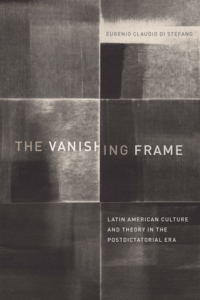
Why You Might Want to Pay Attention to Autonomy: Response to José Eduardo González
The Vanishing Frame began as an attempt to understand the origins and consequences of a postdictatorial reality that was emerging in Latin America during the 1980s and 1990s, one that centered on the commitment to human rights as the primary position through which the Left articulated the concept of injustice and how to confront it. This political reality was as much a consequence of the state that inflicted abuses on its citizens as it was the upshot of international solidarity movements that sought to address and bear witness to these abuses.



